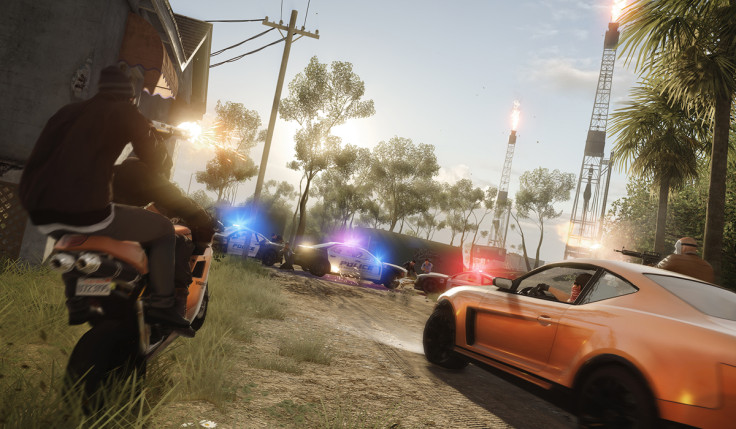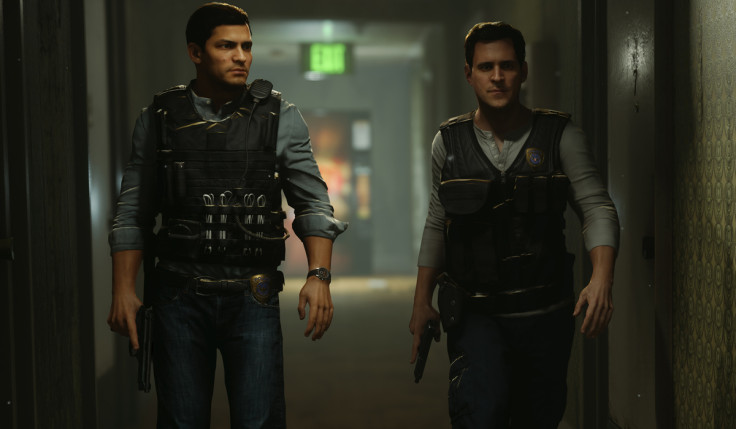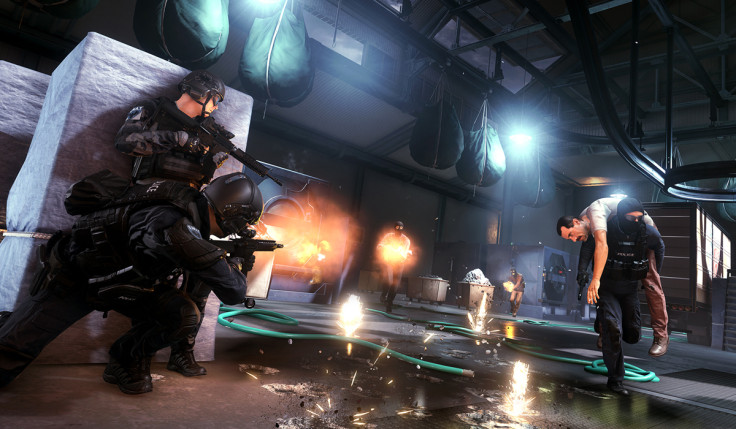Battlefield Hardline interview: Creative Director on Visceral stamping their authority on DICE series

After two public beta tests and a lengthy five month delay, Visceral Games' Battlefield: Hardline will finally be released on Tuesday, 17 March, 2015. The studio best known for sci-fi horror series Dead Space has entered uncharted territory here, taking control of the series from DICE – the team that created and defined Battlefield.
At a review event held in London, IBTimes UK caught up with the game's creative director Ian Miller to discuss how Visceral has stamped its authority on the franchise and made a game very different to what fans might be expecting.
IBTimes UK: Taking over from DICE, what were your fears and ambitions ahead of development?
Ian Miller: We've been working with DICE since day one so of course we're super respectful of doing justice to the Battlefield name and delivering on it, so that's why we started off helping out with Battlefield 3's last expansion pack and a little bit on BF 4. We also felt like we had some juice of our own to bring. First of all we wanted to do something different than what DICE has done because we're a different studio and it's going to be different anyway so we might as well run with that. Plus we have a history with single player which we thought could help. So really a mix of respect, caution and confidence.
Dead Space was a very different kind of game, but how did the development of that series influence Hardline?
The more direct application is the single player. In terms of pacing and story and art and atmosphere, that really helped us with the single player of this quite a bit, helped us deliver something different to what other Battlefield games have done. Then just an overall prioritisation around being tight and polished and well executed as a game.
Battlefield has always been about the multiplayer over the single player. Can you change that, and do you even want to?
I would say 'add to'. There's no question multiplayer is still the focus. Our beta which came out in early February [2015] was only out for six days and had a couple of maps but people played it for 70 hours in some instances. It's pretty extreme compared to what goes on with single player, but we still love single player and we're not going to abandon it. So I'd say it's more us adding more focus to single player rather than taking anything away from multiplayer.

What kind of tone are you trying to strike with Hardline's story? The last Battlefield campaign of real note was Bad Company and that was very individual and tonally assure of itself.
Our primary inspiration was the author Elmore Leonard, who wrote crime drama fiction and the works that have been inspired by him, so TV series like Justified, movies like Out Of Sight, Get Shorty, Jacky Brown, where the characters are bold, they know each other and there's no complicated plot. The people are the plot and it has wit to it without being satire or 'ha-ha' funny, it has the feeling of a cool cop show as opposed to a realistic police simulator or a spoof.
How important was it for you to stamp your authority on the series with Hardline?
Well it feels like we should own it. When you talking about a franchise living as long as Battlefield has, and hopefully will do, different iterations should try things, should be different. As our first entry into the franchise, just by the virtue of us being different developers it was going to be a little different so why not embrace that? When we started this DICE was still a year and a half from being down on BF4. No one's going to do a better DICE game than they do, so it'd be silly to copy theirs exactly. It was important for us to own the differences and do right by Battlefield, but also provide something of our own tone, in our image.
The new multiplayer modes feel very different as well, they're much faster paced than before for example. Was it necessary for them to feel different to classic Battlefield?
I think so. What happens is you might make what you think is a minor change but everything is so balanced and interconnected that making just a minor change doesn't accomplish much, you sorta have to go all the way with it. So we're a little more infantry focused, we're faster paced and so the next thing you know you have to change the map to fit with those things and pay off on a different fantasy altogether. So Hotwire came from 'well we have to have cool car chases,' and that feels like something which fits with our fiction, is not what regular Battlefield would do and provides opportunity for different kinds of players to have different kinds of fun.

Were you ever concerned that you may have strayed too far from what Battlefield is?
We were, then it turns out we were kinda wrong. That's what happened with our first beta and E3, where we were concerned that we were going to go too far with it and make it too different. We didn't want people to say, 'Oh you just had your own cops and robbers game and slapped Battlefield on it'. So I think we were too conservative going into E3, but the feedback was resoundingly, 'No no, you guys should go ahead and do different stuff'.
Crosshair and Rescue are targeting the eSports crowd and are quite far removed from classic Battlefield with smaller teams on smaller maps. Was this necessary for you going after the pro gaming market where something like Conquest wouldn't necessarily fit?
Our feeling was not 100% to go after the eSports crowd, but a lot of things that are paramount to that are good for everybody. What's important to eSports? It has to be rock solid, stable and dependable, it needs to be fair and balanced – everyone loves that. We just wanted to concentrate on some modes that were competitive friendly but in the end that scene will choose for themselves. So we're excited about the possibilities there but what's good for them is good for everybody.
© Copyright IBTimes 2025. All rights reserved.






















